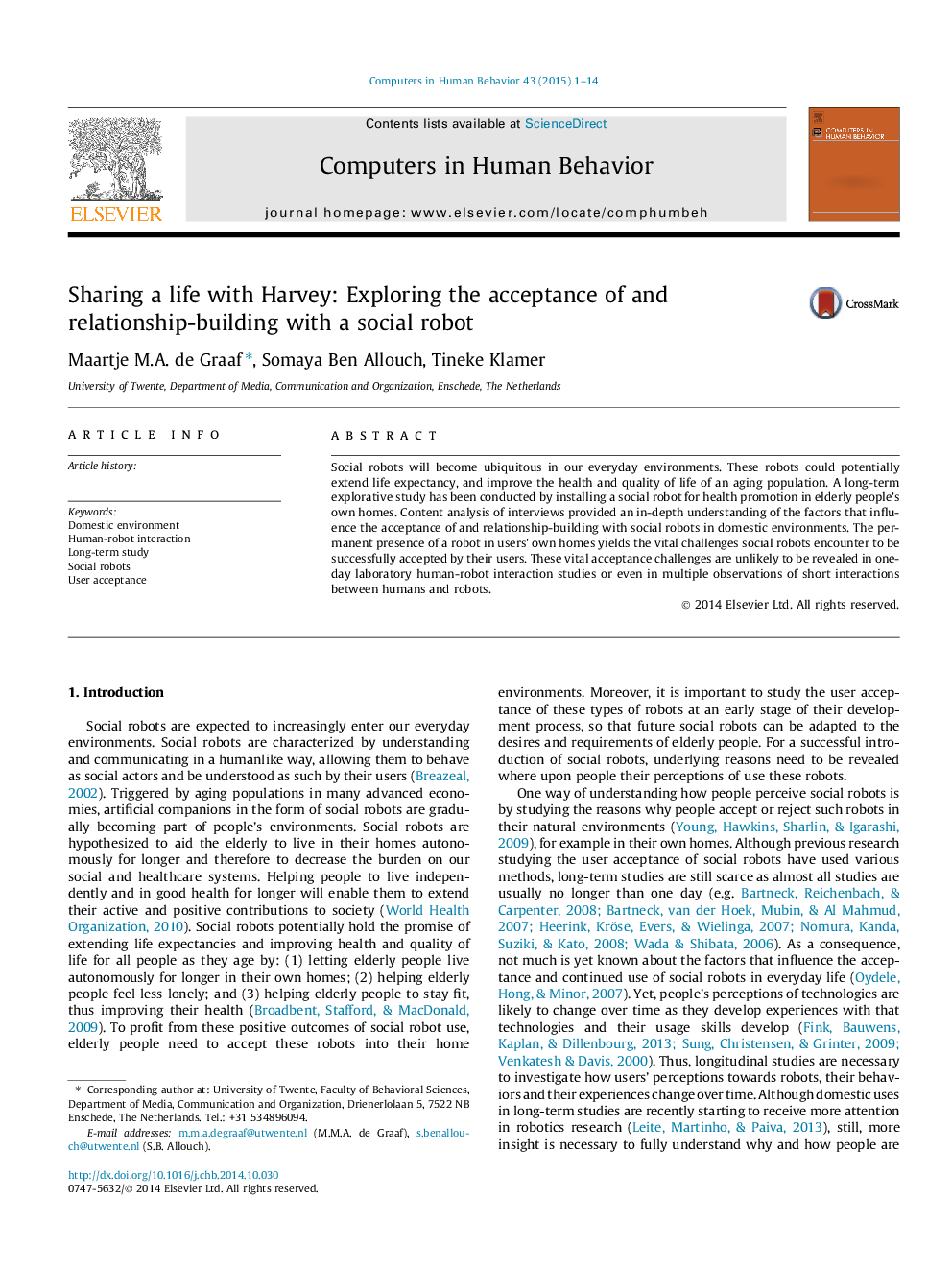| Article ID | Journal | Published Year | Pages | File Type |
|---|---|---|---|---|
| 6838674 | Computers in Human Behavior | 2015 | 14 Pages |
Abstract
Social robots will become ubiquitous in our everyday environments. These robots could potentially extend life expectancy, and improve the health and quality of life of an aging population. A long-term explorative study has been conducted by installing a social robot for health promotion in elderly people's own homes. Content analysis of interviews provided an in-depth understanding of the factors that influence the acceptance of and relationship-building with social robots in domestic environments. The permanent presence of a robot in users' own homes yields the vital challenges social robots encounter to be successfully accepted by their users. These vital acceptance challenges are unlikely to be revealed in one-day laboratory human-robot interaction studies or even in multiple observations of short interactions between humans and robots.
Related Topics
Physical Sciences and Engineering
Computer Science
Computer Science Applications
Authors
Maartje M.A. de Graaf, Somaya Ben Allouch, Tineke Klamer,
